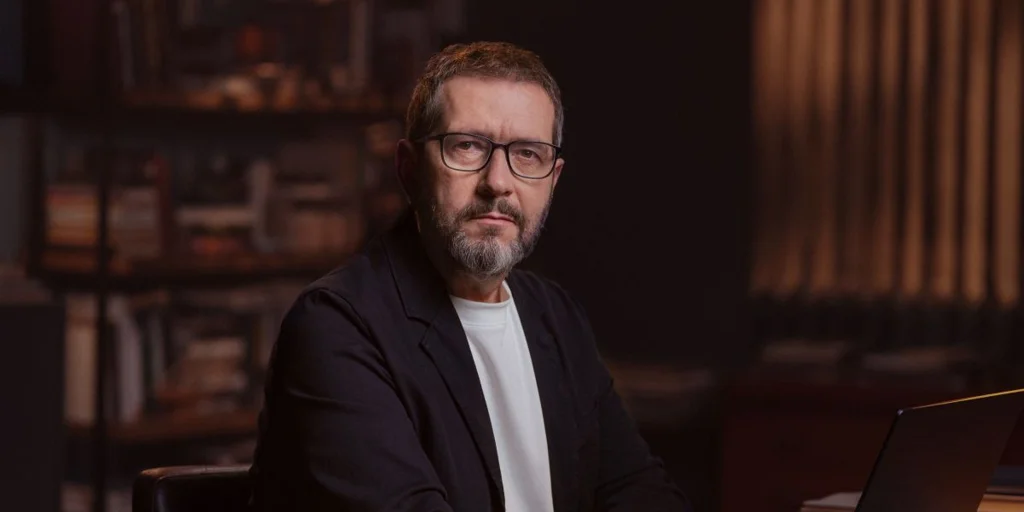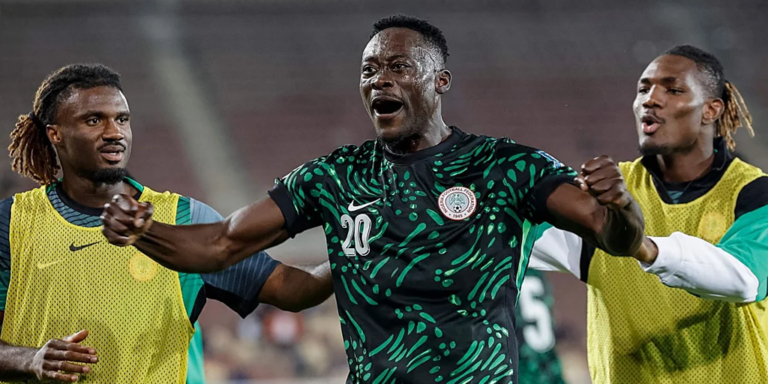
There’s the journalistic nose, and then there’s the Carles Porta nose. His mastery of the art of “true crime”, narrative instinct, and rigor made him a reference for the genre. “The Cursed Mountain” (2005) accurately recreated the murder of Josep Montane. … ‘Sansa of the Pyrenees’, ‘Crimes’ turned black chronicles into cult TV stories, and the podcast ‘They Called Him Father’ courageously exposed networks of child abuse and pornography. Respect for victims and the heartbeat of the story are some of the elements that haunt his works, such as “Missing in Murcia,” which revolves around the case of former Dutch volleyball player Ingrid, which will soon be available on Movistar Plus+. Visser and his partner Rodewijk Severein disappeared in 2013. A story that uncovers a disturbing labyrinth of debt, betrayal, and silence.
Before the “Assunta incident” happened, Porta had already featured numerous incidents in the media and on screens, after providing the platform with “Where is Malta?” or “The Alcassel incident”. He has spent his life trying to dignify the genre, but admits it is sometimes distorted. «There is now an oversensitivity. They are things that happen, things that exist, things that are there, but we don’t seem to want to see them. And that’s wrong. Because starting from death, crime exists, and so does evil. And not talking about it doesn’t make it go away. To me, there is an excess and misguided sense of goodness that degrades us and weakens us as a society. Because talking about crime, talking about what death brings, it makes you stronger, it makes you understand the human species and what’s behind this kind of situation,” the journalist admitted to ABC.
Porta believes that people who cannot view this type of content should not view it. “There’s a very simple exercise of connecting to a different channel or buying a different kind of book. No one forces you to watch a true crime show. It’s a voluntary act. And the storyteller has the freedom to tell the story he wants. This includes sensationalism, exaggeration, I think there’s another aspect, a lack of respect for victims. I can understand why people get upset when it’s focused on one incident. But if it’s done with respect and rigor, why shouldn’t we be able to talk about everything?” he asks.
Porta’s team follows a single guideline, dictated to them by the communicators themselves. That means we have to think of the victim as if he were a member of our family. “It’s a matter of respect for everyone and others in general. Let’s be tough and talk about things respectfully. Me and the whole team I work with have a very strict editorial line. We really want to reach a lot of people and we don’t want to scare anyone away with too many words or too many images,” he explains.
Throughout the projects we work on, our team strives to avoid images of corpses, blood, and contents that could lead to death. Even in his fiction, he asserts that he always strives to be far more thought-provoking than the obvious. «We always try to ensure that potentially painful statements come from the mouths of people who can actually talk about them.. “And any statements that may cause harm to third parties must be very justified and very careful and must not be said just for the sake of it,” he indicated. Furthermore, he recognizes that his work has little or nothing to do with the disease. “The disease will end soon. We stimulate curiosity in our viewers. And curiosity doesn’t have to be just morbid. We all have curiosity. We all want to know what happened, how it happened, why it happened, and who did it.” Or, with minimal morbidity, it seems morbid to start with a cadaver, but I accept that starting point, but from there we talk about life, we talk about turns in the story, we talk about characters, personalities, research difficulties.
Copycats and “parasites”
Over time, Carles Porta dictated how to carry out “true crimes” in which the documentation work was long and extensive, and in which those who analyzed, commented on, and handed down judgments had sufficient power and authority to be considered experts on the subject. Porta’s mission in this profession is built on countless studies, and like any teacher, his work attracts students, or rather imitators, who try to do the same as Porta, but with less documentation and rigor, through blogs, podcasts, or social media accounts. “Parasites exist in all animal species, and we can’t avoid them. They are born, grow, reproduce, and die just like anyone else. Well, it’s a good thing they exist. The only thing I worry about is the damage they cause to third parties because they often fail to maintain their rigor. There are many who do, but many In most cases, the necessary rigor is not maintained. It is done to fill the time and above all to satisfy the egos of the individual protagonists, those who want to talk about it, and fill their mouths with blood. That makes me sad, ”he said honestly, making sure that he did not eat any of the books, even though he was scared when he saw the publications.
“I trust the public, and I believe the public understands that these imitators and parasites can get anywhere, and that it’s always important to go to the original source, the primary source. We spend a lot of time on an episode of something, we have a lot of sources and first-hand witnesses. And then the neighbor speaks it, fills his program with things that have been siphoned off from our program. We’re not going to do anything to him. At least there are people who have the decency to say that. There are people who don’t even have the decency to do that, but I don’t even want to consider whether it’s legal or not. We have to keep looking forward instead of looking back. These parasites are always small,” he says.
However, we also recognize that the presence of a large number of such objects may cause some problems due to noise. “It seems like there are a lot of “true crimes,” when in reality, there are very few “true crimes” that are very well committed.” There are many parasites, but I always appeal to everyone’s professionalism. Because those who need to decide who to talk to will talk to real experts, not marketing experts. But hey, it’s all there. It’s inevitable. It’s inevitable,” he explains.
The key to making a good “true crime” movie
Few things are needed to commit a “true crime,” but one is essential. “It’s important to have intuition. Agustin Perry has intuition, although it is also essential that there are script twists in the story. We are not talking about current events, but cases that have already gone to trial or unsolved cases that happened many years ago. From a time perspective, you can see if there is a plot twist. You also have to consider it by investigating and knowing what was done in the case. “This gives us a clearer understanding of what’s behind all of this,” he explains, citing other key elements of the work, such as access to overviews and documentation such as video and audio. “It’s also important to have access to the immediate protagonists of the story, from the investigators to the victim’s relatives, the lawyers, judges, prosecutors, and the people who experienced the story firsthand. The journalists who wrote it are of no use to us. Yes, we hire journalists to talk to them, but only as long as there are people who have experienced it firsthand and investigated it,” he explains.



